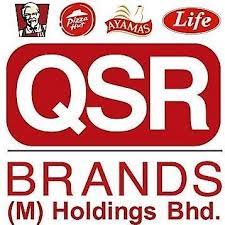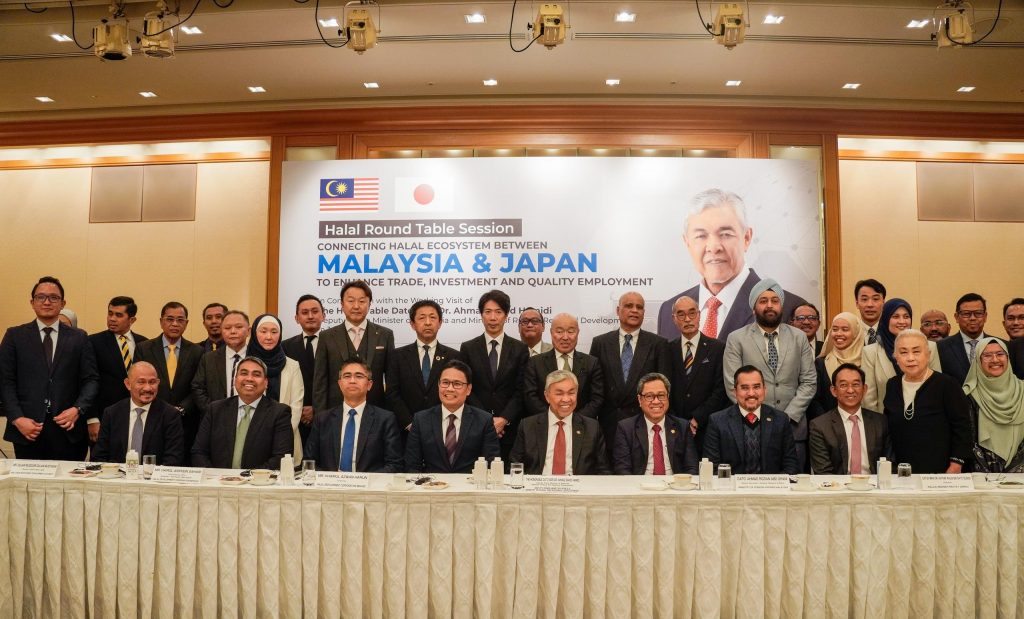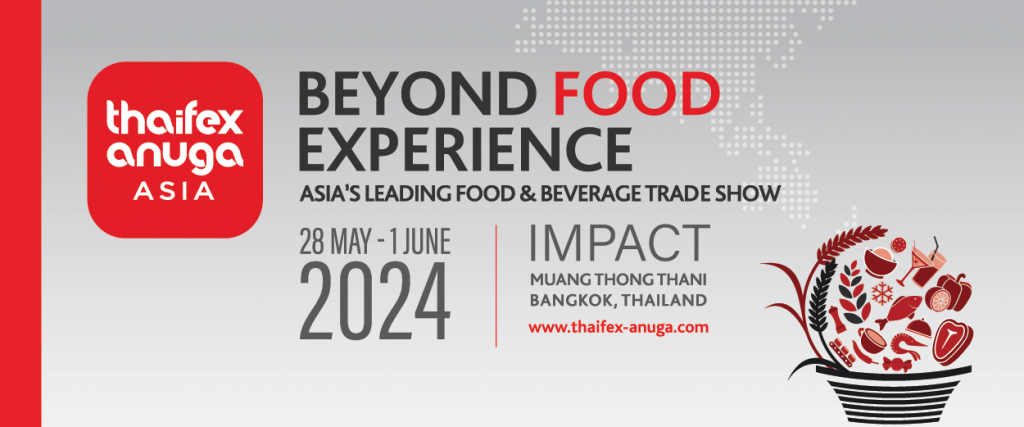Malaysia Continues To Be A Competitive Investment Destination In Asia
By Tengku Noor Shamsiah Tengku Abdullah
KUALA LUMPUR, Dec 29 (Bernama) — Malaysia continues to be a safe
and competitive investment destination in Asia due to its
well-developed physical and institutional infrastructure compared to
other countries on the continent.
The national economy is expected to continue showing low
inflation, a strong current account surplus, stable monetary and
exchange rates and a resilient banking sector despite the current
global economic turmoil.
Among others, a potential investment to tap into in the country,
is the halal industry. Malaysia continues to make great strides in
promoting its world class Halal hub.
The government has also been active in promoting the country’s
halal products and services while strengthening the halal certification
programme.
Located strategically within the Asia Pacific region, Malaysia is
among the most developed countries in Asean.It is also recognised
internationally as a modern and progressive Islamic country with an
open economy offering competitive business incentives.
Blessed with economic and political stability, the country is well
positioned to become the leader in developing the halal industry.
The United Nations had cited Malaysia as the best example in the
world in terms of rationalisation for the labeling of Halal food, when
the Codex Alimentarius Commission adopted the Codex general guidelines,
for the use of the term “Halal” in Geneva in 1997.
Malaysia’s active role in the Organisation of the Islamic
Conference (OIC) and its position as the home of the Islamic Financial
Services Board (IFSB), further enhanced the country’s standing as the
market leader in the provisioning of halal products and services
globally.
Speaking at the opening of the Sixth Malaysian International Halal
Showcase (MIHAS)2009 and the Second World Halal Research Summit in
Kuala Lumpur, Prime Minister Datuk Seri Najib Tun Razak, encouraged
Malaysian companies to link up with international companies to
accelerate their entry into the global halal market.
He said local companies could seek strategic alliances either
through equity participation or buying over of international brands.
According to Najib it is essential for Malaysian companies to seek
such tie-ups within the country and abroad to benefit from each
partner’s strength.This is in terms of sourcing for raw materials,
ingredients, technology, distribution channels and branding.
Local companies should also further strengthen bilateral ties with
Malaysia’s trading partners, in particular, the Organisation of Islamic
Conference (OIC) countries in Africa and China.
He also stated that the companies should also seek the vast business opportunities in the halal industry in these countries.
Malaysian Halal Industry Development Corporation (HDC) managing
director and chief executive officer Jamil Bidin said Malaysia is in a
strong position to become the global halal industry hub with its
established reference point as the centre for training, research and
development (R&D), and standards.
“Having taken the lead in the global multi-billion business of
providing halal products and services, including Islamic
finance,Malaysia has moved aggressively in the industry over the past
few years,” he said.
He explained that the HDC had started with the development of
standards and was now moving into logistics, non-food products while
being way ahead of many countries in respect of the halal industry.
According to him the Malaysian halal industry had the potential to
contribute about 5.8 per cent to the country’s gross domestic product
(GDP) by 2020. This is in line with the target set by the HDC under its
masterplan for the industry.
He said the global economic downturn had caused the HDC to prioritise its projects.
According to Jamil, the halal industry is big and the HDC was facing stiff competition from some other countries.
However, he said confidently that Malaysia had the edge as it
started moving aggressively in the industry way back in the 1980s.
Meanwhile, the announcement by Najib on the liberalisation plan
for the financial services sector will further boost Malaysia’s
attractiveness as an investment destination.
The measures include raising foreign equity participation in
investment banks and insurance companies to a limit of up to 70 per
cent from 49 per cent.
The foreign equity limit for domestic commercial banks will remain at the current 30 per cent.
To enhance the operational flexibility of foreign institutions
operating in Malaysia, locally incorporated foreign commercial banks
will be allowed to establish four new full-fledged branches with effect
from 2010 and 10 microfinance branches, from this year.
These liberalisation measures will be implemented from 2009 to
2012 and are in line with the government’s initiative to promote
structural change within the economy and diversify sources of growth to
further drive economic expansion.
Malaysia is also a good place to do business because the national economy has been recording a good performance.
Following an externally induced slowdown in 2001, the Malaysian
economy rebounded strongly with a GDP growth of 5.2 per cent in 2003.
The expansion was attained against a backdrop of low inflation, low
unemployment and strong reserves.
For this year there was a slight contraction following the global
economic turmoil. Economists’ however say, the situation is temporary.
In terms of attracting foreign direct investment (FDI) into the
country, the Malaysian Industrial Development Finance Bhd (MIDF) group
managing director, Mohd Najib Abdullah said in a recent interview with
Bernama that Malaysia is still an attractive destination for it.
“The numbers are still there.We should take a look at it in
totality.It is no use arguing that investments have
fallen.Globally,investments have also dropped.
“So, it is whether Malaysia is able to attract new foreign and new
domestic investment. The numbers are still there and that is a bright
spot for the economy,” he said.
He said foreign investors are still looking at Malaysia and continuing to invest in the country.
As part of efforts to provide a conducive business environment,
the government is commited to improving its public service delivery
system.
The private sector is left free to take the lead in providing new sources of growth for the economy.
The government will assist by taking appropriate measures to
further bring down the cost of doing business in Malaysia, both direct
and indirect.
It is also pertinent for potential investors to look at Malaysia in the context of the Asean market.
Investors should know that under the Asean Free Trade Area (AFTA),
products manufactured in Malaysia, which meet the Asean content
requirements, enjoy preferential access in the other member countries.
At present, Malaysia accounts for 24.7 per cent of the intra-Asean
trade, and the monetary value of this share in 2003 was US$160.1
billion.
With the global economy slowly recovering, the Asian Development
Bank (ADB) expects Malaysia’s economy to return to growth in 2010.
In its special assessment of the region released this month, the
international development finance institution had forecast Malaysia’s
GDP to grow by 4.5 per cent next year.
It said Malaysia’s economy is expected to contract 2.5 per cent in
2009 after registering a -5.1 per cent in the first half of the year
and -1.2 per cent in the third quarter.



